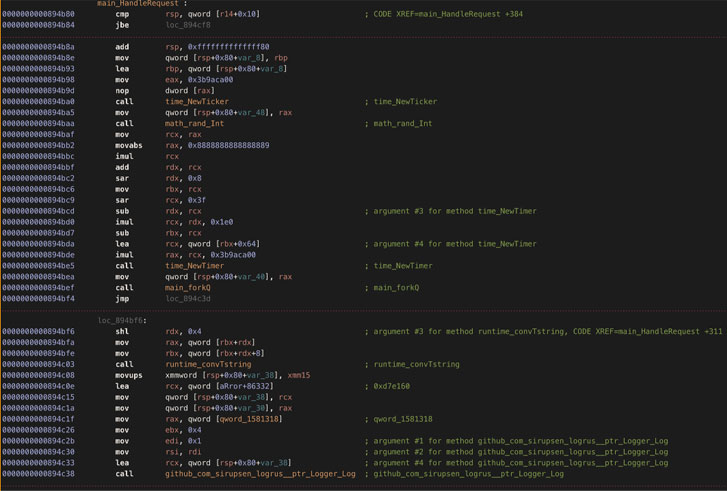First Malware Targeting AWS Lambda Serverless Platform Discovered
A first-of-its-kind malware targeting Amazon Web Services' (AWS) Lambda serverless computing platform has been discovered in the wild.
Dubbed "Denonia" after the name of the domain it communicates with, "the malware uses newer address resolution techniques for command and control traffic to evade typical detection measures and virtual network access controls," Cado Labs researcher Matt Muir said.
The artifact analyzed by the cybersecurity company was uploaded to the VirusTotal database on February 25, 2022, sporting the name "python" and packaged as a 64-bit ELF executable.
However, the filename is a misnomer, as Denonia is programmed in Go and harbors a customized variant of the XMRig cryptocurrency mining software. That said, the mode of initial access is unknown, although it's suspected it may have involved the compromise of AWS Access and Secret Keys.
Another notable feature of the malware is its use of DNS over HTTPS (DoH) for communicating with its command-and-control server ("gw.denonia[.]xyz") by concealing the traffic within encrypted DNS queries.
In a statement shared with The Hacker News, Amazon stressed that "Lambda is secure by default, and AWS continues to operate as designed," and that users violating its acceptable use policy (AUP) will be prohibited from using its services.
While Denonia has been clearly designed to target AWS Lambda since it checks for Lambda environment variables prior to its execution, Cado Labs also found that it can be run outside of it in a standard Linux server environment.
"The software described by the researcher does not exploit any weakness in Lambda or any other AWS service," the company said. "Since the software relies entirely on fraudulently obtained account credentials, it is a distortion of facts to even refer to it as malware because it lacks the ability to gain unauthorized access to any system by itself."
However, "python" isn't the only sample of Denonia unearthed so far, what with Cado Labs finding a second sample (named "bc50541af8fe6239f0faa7c57a44d119.virus") that was uploaded to VirusTotal on January 3, 2022.
"Although this first sample is fairly innocuous in that it only runs crypto-mining software, it demonstrates how attackers are using advanced cloud-specific knowledge to exploit complex cloud infrastructure, and is indicative of potential future, more nefarious attacks," Muir said.
Source: thehackernews.com
 Reviewed by Zion3R
on
6:52 PM
Rating:
Reviewed by Zion3R
on
6:52 PM
Rating:









